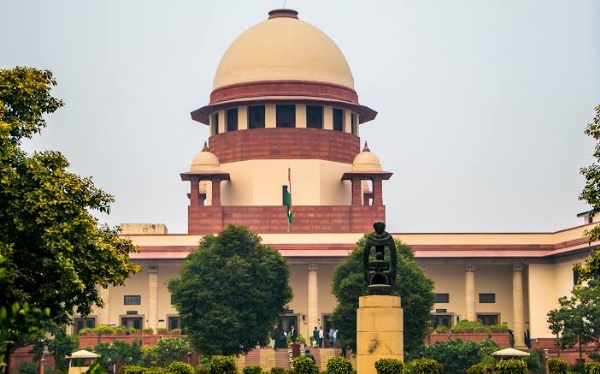
New Delhi, August 13(HS): The Supreme Court bench, headed by Justice Surya Kant, will on Thursday (August 14) resume hearing a series of petitions challenging the Special Intensive Revision (SIR) of electoral rolls currently underway in Bihar.
During Wednesday’s proceedings, senior advocates voiced sharp criticism over the exclusion of widely held identification documents from the verification process, alleging that this could lead to wrongful deletions from the voter list.
Advocate Prashant Bhushan claimed that over 25% of the Enumeration Forms filled out by Booth Level Officers lacked even one among the 11 approved documents. As a result, he said, names of deceased individuals were still appearing in the draft rolls. He accused the Election Commission of rejecting voter ID cards and Aadhaar as proof of citizenship while treating the remaining documents as though they were the ultimate benchmark for nationality.
Senior Advocate Abhishek Manu Singhvi argued that most of Bihar’s electorate would not possess the prescribed documents. “Voter ID is the most reliable identification, yet it has been excluded. Aadhaar, which almost everyone has, is also left out. How many in Bihar own passports? Barely 1–2%. Land records? Not for the landless. Residence certificates are rare. The process is unrealistic, especially in rural, flood-hit, and impoverished areas,” Singhvi said, questioning the timing of the revision so close to the elections.
At this, Justice Surya Kant interjected, asking Singhvi not to generalize about Bihar, noting that the state continues to produce the highest number of IAS officers. Singhvi responded that while Bihar has brilliant achievers, such opportunities are limited to a privileged class, and the majority still live in underdeveloped conditions.
Earlier, the court had observed that voter rolls cannot remain static and must be periodically revised. It acknowledged that while the list of acceptable documents has been expanded from seven to eleven—purportedly making the process more “voter-friendly”—public trust in the process appears to be lacking.
Kapil Sibal, representing RJD leader Manoj Jha, told the court that in one assembly constituency, twelve living individuals had been wrongly marked as deceased and struck off the rolls, while names of actual deceased persons still featured in the draft list.
The Election Commission’s counsel, Rakesh Dwivedi, defended the process as a draft stage, assuring that public objections would be invited and corrections duly made.
The court will continue to hear arguments from all sides on Thursday, aiming to ensure that no eligible voter is wrongly disenfranchised ahead of the polls.
---------------
Hindusthan Samachar / Jun Sarkar








